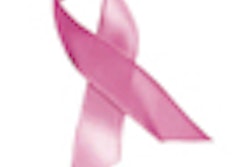
With more than 1.4 million new cases of cancer diagnosed each year in the U.S. and more of these patients undergoing outpatient treatment, dental practitioners are increasingly likely to deal with the side effects of these treatments. A new literature review in Oral Diseases (January 7, 2011) provides a comprehensive overview of oral complications that can result from chemotherapy and radiation therapy, along with tips on how to manage them.
"While treatment for cancer in terms of chemotherapy (CT) and radiation therapy (RT) have evolved significantly, both of these cancer treatment modalities, especially if used in combination, have a very real potential to result in painful and debilitating adverse effects that decrease quality of life and, potentially, increase mortality due to cancer," wrote researchers from the Medical College of Wisconsin and Marquette University School of Dentistry.
The authors focused on three categories of oral complications that often develop during the treatment of cancer patients: mucositis, dysgeusia, and infectious disease. They also offered therapeutic options that can be helpful in relieving these complications and their often debilitating effects.
Mucositis
Mucositis is one of the most clinically visible manifestations of cancer chemotherapy, the authors noted, negatively affecting the patient's ability to maintain adequate oral intake and sufficient body weight. It can be associated with alteration in taste (dysgeusia), hyposalivation, and, in severe cases, dysphagia (Journal of Clinical Nursing, November 2007, Vol. 16:11, pp. 2114-2121).
Therapeutic intervention at the ulcerative stage of mucositis is critical to avoid concurrent infection, the authors found. Regular toothbrushing, flossing, and chlorhexidine-containing mouthwash use can help prevent bacterial colonization in these lesions (Cancer, March 1, 2007, Vol. 109:5, pp. 820-831). In addition, hyposalivation can be prevented by maintaining proper oral hydration through consistent water intake and use of artificial saliva substitutes. Stimulating saliva production can help preserve mucosal integrity, the researchers noted.
"While no medication has proven to successfully eliminate mucositis, management of painful symptoms can help alleviate oral discomfort and improve patient quality of life," they wrote. The management of oral mucositis-associated pain commonly includes the use of "magic mouthwash," which contains various amounts of diphenhydramine, viscous lidocaine, bismuth subsalicylate, and corticosteroids (Journal of Oncology Pharmacy Practice, December 2005, Vol. 11:4, pp. 139-143).
Other potential mucositis therapies include oral cryotherapy (ice chips), low-level laser therapy, and hormone therapy (Dental Clinics of North America, January 2008, Vol. 52:1, pp. 61-77). New treatment approaches could also emerge from the study of growth factors and cytokines involved in the biological process of mucosal destruction, the researchers noted.
Dysgeusia
Dysgeusia -- a distorted or impaired ability to taste -- is a common side effect of chemotherapy and radiation therapy in cancer patients, particularly when the two are combined in head and neck cancer patients. It affects 50% to 75% of cancer patients receiving CT and RT (Supportive Care in Cancer, August 2010, Vol. 18:8, pp. 1081-1087). Direct injury to mucosal epithelium, nerves, taste buds, or olfactory receptors in the mouth and nose from CT or RT is a major source of dysgeusia in cancer patients.
Because it has the potential to affect appetite, dysgeusia can also reduce caloric intake and induce weight loss in cancer patients undergoing treatment.
"Interestingly, RT patients (mostly for head and neck cancers) have worse dysgeusia than CT patients, and the severity is highly correlated with cumulative radiation dose," the researchers wrote. "Indeed, 15% of RT patients continue to have altered taste even after completing their treatment."
While the origins of dysgeusia are multifactorial, there are straightforward ways -- including dietary counseling, treatment of oral infection, and altering drug schedules -- to minimize its impact, they noted (Supportive Care in Cancer, May 2001, Vol. 19:4, pp. 247-257).
In addition, symptomatic patients are advised to drink plenty of fluids while eating, and they should chew food slowly to increase saliva production. Nutritionists also advise patients to switch foods during meals to prevent adaptation of taste receptors.
Zinc supplementation has been used as a management strategy for dysgeusia, but some trials showed no significant improvement (International Journal of Radiation Oncology, Biology, Physiology, April 1, 2007, Vol. 67:5, pp. 1318-1322). Other studies have shown that vitamin D supplements benefited patients with chemotheraphy-induced dysgeusia (Journal of Clinical Oncology, November 8, 2010).
Drug therapy (amifostine and zinc supplementation) for dysgeusia resulting from CT and RT has been "disappointing," the authors noted, prompting them to suggest that other avenues for treatment -- such as vitamin D supplementation -- should be investigated.
Infectious disease complications
|
Advice for treating cancer patients Oral complications occur in virtually all patients receiving radiation for head and neck malignancies, in 80% of hematopoietic stem cell transplant recipients and in nearly 40% of patients receiving chemotherapy for any cancer, according to guidelines from the National Institute of Dental and Craniofacial Research (NIDCR). Patients at the highest risk for oral complications include those undergoing radiation for oral, pharyngeal, and laryngeal cancer and those receiving stomatotoxic chemotherapy, which can result in prolonged myelosuppression. With a pretreatment oral evaluation, the dental team can identify and treat problems such as infection, fractured teeth or restorations, or periodontal disease that could contribute to oral complications when cancer therapy begins. Before beginning the clinical exam, dentists should obtain the patient's cancer diagnosis and treatment plan, medical history, and dental history. A comprehensive oral evaluation should be done one month before cancer treatment starts to allow adequate time for recovery from any required invasive dental procedures. If oral surgery is required, it should be done at least two weeks before radiation begins and at least seven to 10 days before chemotherapy begins, the NIDCR advised. Orthodontic bands and brackets should be removed if highly stomatotoxic chemotherapy is planned or if the appliances will be in the radiation field. Fluoride rinses are not adequate to prevent tooth demineralization in cancer patients undergoing treatment, according to the NIDCR. The agency recommends a high-potency fluoride gel, delivered via custom gel applicator trays. In addition, patients should be advised to brush teeth, gums, and tongue with an extra-soft toothbrush and fluoride toothpaste after every meal and before bed. Daily flossing also is recommended. Mouthwashes containing alcohol should be avoided. Instead, these patients should rinse with a baking soda and salt solution. Those undergoing radiation therapy are also advised to exercise the jaw muscles three times a day to prevent or ease jaw stiffness. |
Because of their effects on oral mucosa, both chemotherapy and radiation therapy can lead to opportunistic infections, such as candidiasis, viral infections, and bacterial disease.
For example, the prevalence of oral fungal infection in all cancer treatments was 7.5% before treatment, 40% during treatment, and 30% after treatment. Rates of colonization approached 70% during and after treatment (Supportive Care in Cancer, August 2010, Vol. 18:8, pp. 985-992). Pseudomembranous candidiasis (thrush), erythematous candidiasis, and angular cheilitis are the most common presentations, the researchers found.
Infectious Diseases Society of America suggests clotrimazole troches or nystatin pastilles as the first-line therapy for mild oropharyngeal candidiasis. But some studies have shown that troches/pastilles are difficult to use and are traumatic in circumstances such as hyposalivation due to head and neck radiation and/or mucositis from chemotherapy. In these situations, nystatin rinses may be better (Supportive Care in Cancer, August 2010, Vol. 18:8, pp. 985-992).
Although topical agents offer some advantages, they are associated with a high relapse rate. Thus, systemic (usually oral) antifungals are preferred for treating oral candidiasis. Systemic fluconazole (Diflucan) is recommended for moderate to severe disease and may be of particular benefit when hyposalivation is present (Clinical Infectious Diseases, March 2009, Vol. 48:5, pp. 503-535).
Systemic prophylaxis against fungal infections in cancer patients receiving treatment also prevents oral fungal infections (Cochrane Database of Systematic Reviews, 2010, Issue 7, Art. No. CD001972). Several studies reported that the prophylactic use of fluconazole during cancer therapy reduces the prevalence of all clinical fungal infections, including systemic infections, to 1.9% (Supportive Care in Cancer, August 2010, Vol. 18:8, pp. 985-992).
However, a "Cochrane review meta-analysis published in 2007 concluded that there is insufficient evidence to make a recommendation for or against treating oral candidiasis with antifungal agents in cancer patients receiving cancer treatment, emphasizing the need for more placebo-controlled trials," the Oral Diseases review authors wrote.
Viral and bacterial infections
Oral viral infections -- including herpes simplex virus (HSV), varicella zoster virus, Epstein-Barr virus, and cytomegalovirus -- are often complications of cancer treatment. Patients undergoing combined radiation therapy and chemotherapy are particularly susceptible to HSV due to an immunosuppression effect (Supportive Care in Cancer, August 2010, Vol. 18:8, pp. 993-1006), and dental practitioners should consider testing for HSV when acute, painful oral ulcerations that are otherwise unexplained or persistent are present.
Acyclovir (Zovirax) and valacyclovir (Valtrex) have been shown to be effective for preventing oral HSV infection in immunosuppressed HSV patients (Oral Diseases, May 2006, Vol. 12:3, pp. 254-270). Famciclovir (Famvir) also is an option.
Numerous bacteria also can become pathogenic with immune suppression. However, such infections are usually localized and can be treated with a combination of penicillin and metronidazole (Clinical Microbiology Infections, November 2007, Vol. 13:11, pp. 1041-1047).
Finally, studies have shown that patients who had undergone RT for head and neck malignancies had the highest rate of decayed, missing, and filled teeth among patients who have had antineoplastic therapies (Supportive Care in Cancer, August 2010, Vol. 18:8, pp. 1007-1021). As a result, patients undergoing RT should use fluoride products and chlorhexidine rinses following treatment.
"Despite many improvements in CT and RT for cancer patients, oral complications are common," the Oral Diseases review authors noted in their conclusion. "Fortunately, effective treatments do exit, ranging from antibiotics for bacterial and fungal infections to palifermin for chemotherapy-induced mucositis."
Even so, they concluded, "ongoing research is very much needed to find new therapeutic targets that will reduce [the] debilitating, severe side effects in patients undergoing cancer treatment."
For more on the management of oral complications in cancer patients, check out this online CE course offered by DrBicuspid.com.
Copyright © 2011 DrBicuspid.com



















